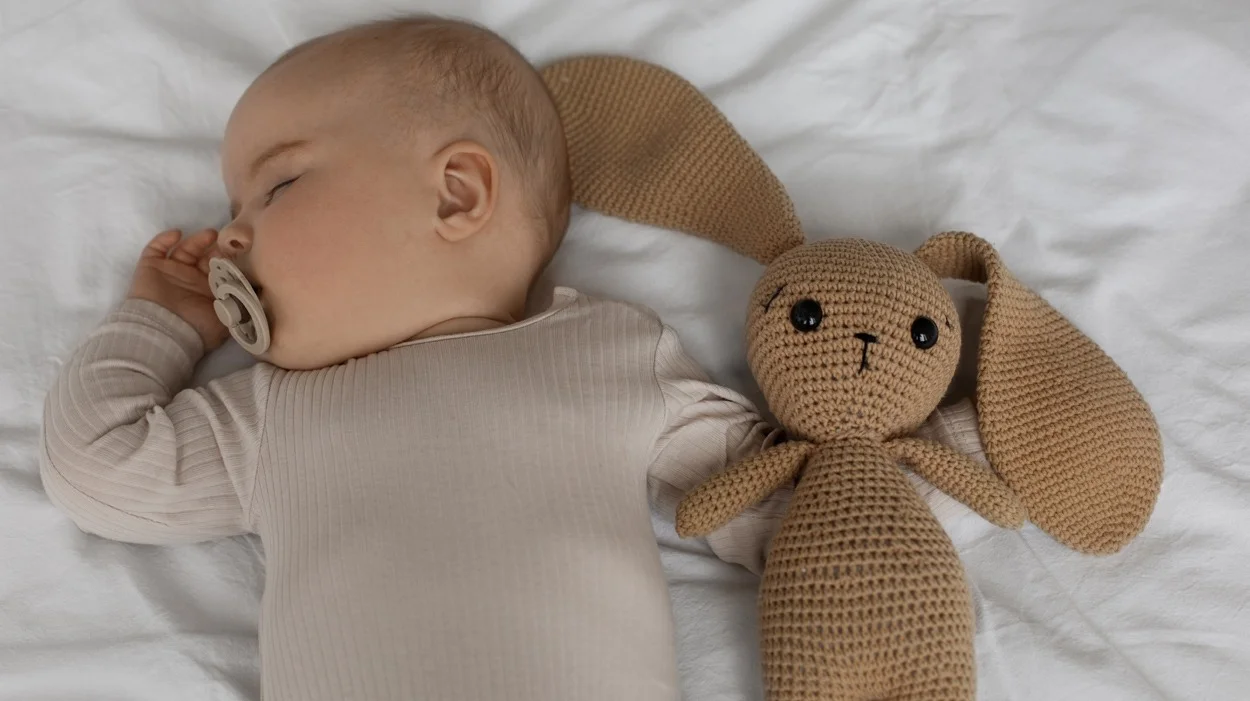Daytime Sleep in Babies: How Long Should It Be and When Does It Decrease?
Sleep is as important as nutrition for babies’ healthy growth and development.
Especially in the first years, daytime sleep has a great impact on babies’ mental development, emotional balance, and immune system.
However, many parents ask this question: “Is my baby sleeping too much during the day, or too little?”
Here is the sleep schedule by age.
- During the day, babies learn new things, explore their surroundings, and are constantly exposed to stimuli.
- This intense flow of information requires the brain to rest and process what it has learned.
- Daytime sleep allows both physical recovery and the consolidation of learned information into memory.
Also, babies who sleep enough during the day:
- Are more peaceful,
- Fall asleep more easily at night,
- Cry less, and have a more stable feeding routine.
Daytime Sleep Duration by Age
0–3 months:
Sleep a total of 14–17 hours a day.
Sleep 4–5 short times during the day.
3–6 months:
Sleep a total of 14–16 hours a day.
Daytime sleep of 3–4 hours, usually divided into morning, noon, and afternoon.
6–12 months:
Sleep a total of 13–15 hours a day.
Daytime sleep of 2–3 hours, usually between morning and noon.
1–2 years:
Sleep a total of 12–14 hours a day.
Usually only once, around noon, sleep for 1–2 hours.
3 years and after:
Sleep a total of 10–13 hours a day.
Some days, only a short nap at noon is enough.
This table is a general guide. Every baby is different; some wake up early, some nap longer. What matters is the baby’s calmness and energy level during the day.
When Does Daytime Sleep Decrease?
Around 12–18 months, most babies stop their morning nap and switch to only a noon nap.
Around 2 years old, some babies start to reduce their noon nap as well.
However, completely stopping it usually happens around 3–4 years old.
If your baby shows the following signs, they may need less daytime sleep:
- If they fall asleep late at night or wake up frequently,
- If they can stay energetic despite daytime sleep,
- If they want to play for a long time at sleep time.
Tips for a Healthy Sleep Routine
Put them to bed at the same time every day. Regular hours balance the biological clock.
Create a pre-sleep routine. Habits like reading a story, singing a lullaby, or dim light make it easier to fall asleep.
Do not feed right before sleep. Fullness or gas can make falling asleep harder.
Keep them away from screens. Light stimulation reduces melatonin production.
Allow short naps but don’t leave them for late afternoon hours.
Balancing with Night Sleep
Some parents want to keep the night long by making the baby sleep less during the day.
However, this method usually has the opposite effect.
Overtired babies become restless and have difficulty falling asleep.
So, not less sleep, but quality sleep is important.
In Short
Daytime sleep is not just a rest break for babies but an important part of growth.
Providing sleep durations suitable for age supports both physical and emotional development.
Observe your baby’s needs, respect their own rhythm, and remember: every baby’s sleep path is different.





Comments0
No comments yet — be the first to comment!